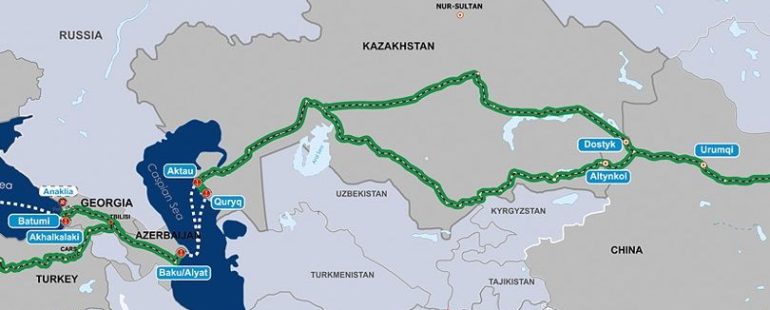
International transport to Azerbaijan via Iran plays a crucial role in connecting these two neighboring countries and facilitating the movement of goods and people between them. As both Azerbaijan and Iran are landlocked countries, the transportation sector plays a vital role in their economic development and growth. In recent years, there has been a significant increase in trade and investment between the two countries, and transportation infrastructure has been a key factor in this growth.
International transport between Azerbaijan and Iran
One of the main modes of international transport between Azerbaijan and Iran is by road. The two countries are connected by several major border crossings, including the Astara-Rasht border crossing, which is located on the Caspian Sea coast. This border crossing serves as a vital link for the transportation of goods between the two countries and provides easy access to Azerbaijan’s major cities such as Baku and Ganja. Trucks and other vehicles can travel between the two countries via this border crossing, allowing for the smooth transportation of goods and materials.
Transit between Azerbaijan and Iran via Rail Freight
In addition to road transport, international transport to Azerbaijan via Iran also includes railway connections. Azerbaijan and Iran are connected by a railway line that runs from Astara in Azerbaijan to Rasht in Iran. This railway line provides an important link between the two countries and allows for the transportation of goods and passengers by train. The railway connection between Azerbaijan and Iran is an essential part of the transportation infrastructure in the region and plays a crucial role in facilitating trade and commerce between the two countries.
Transit between Azerbaijan and Iran via Sea Freight
Another important mode of international transport between Azerbaijan and Iran is by sea. The Caspian Sea provides a natural waterway for the transportation of goods between the two countries. Ports in both Azerbaijan and Iran serve as important hubs for maritime trade and provide facilities for the loading and unloading of cargo ships. The Caspian Sea route offers a cost-effective and efficient way to transport goods between Azerbaijan and Iran and is used for a variety of products, including oil, gas, and agricultural goods.
Transit between Azerbaijan and Iran via Air Freight
Air transport is another important mode of international transport between Azerbaijan and Iran. Several airlines operate flights between the two countries, providing connections between major cities such as Baku and Tehran. The air route is a fast and convenient way to travel between Azerbaijan and Iran and is used for business, tourism, and other purposes. The international airports in both countries offer modern facilities and services for passengers and cargo, making air transport a popular choice for travel between Azerbaijan and Iran.
Overall, international transport to Azerbaijan via Iran is vital for the economic development and growth of both countries. The various modes of transportation, including road, rail, sea, and air transport, provide important links between Azerbaijan and Iran and facilitate the movement of goods and people between them. The transportation sector in both countries continues to expand and improve, providing greater opportunities for trade and investment and contributing to the strengthening of relations between Azerbaijan and Iran. With ongoing infrastructure developments and improvements in transportation services, the future looks bright for international transport between Azerbaijan and Iran.

Comments (No Responses )
No comments yet.